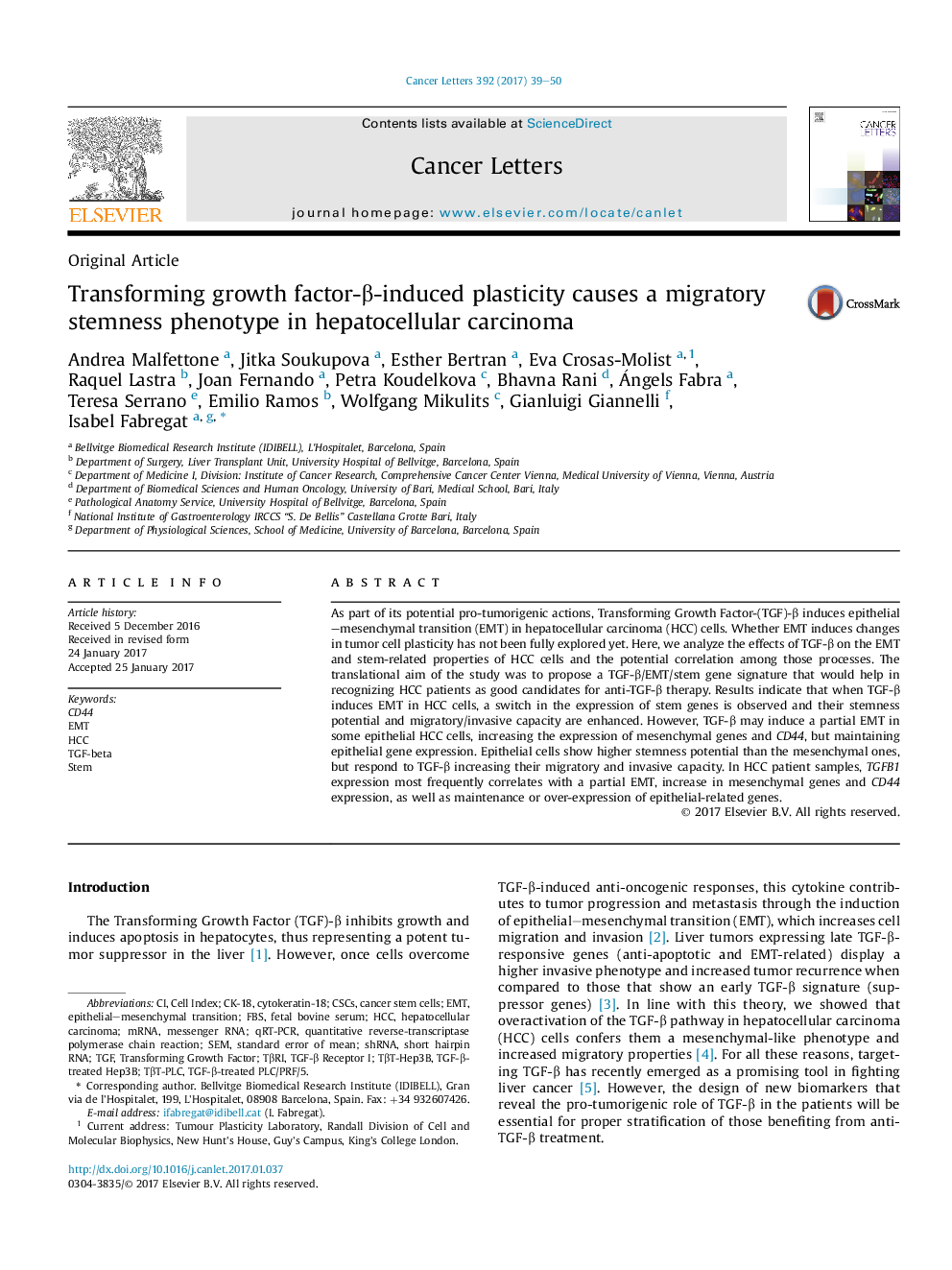| کد مقاله | کد نشریه | سال انتشار | مقاله انگلیسی | نسخه تمام متن |
|---|---|---|---|---|
| 5525370 | 1546677 | 2017 | 12 صفحه PDF | دانلود رایگان |

- Stem-related gene expression in HCC cells depends on their epithelial or mesenchymal phenotype.
- TGF-β-induced EMT provokes a switch in the expression of stem genes from EPCAM or CD133 to CD44.
- TGF-β induces a partial EMT in some epithelial HCC cells, up-regulating CD44, without losing EPCAM or CD133 expression.
- The partial EMT phenotype confers higher stemness potential than the full EMT one.
- In HCC patients, the most frequent EMT/stem gene signature is a partial EMT.
As part of its potential pro-tumorigenic actions, Transforming Growth Factor-(TGF)-β induces epithelial-mesenchymal transition (EMT) in hepatocellular carcinoma (HCC) cells. Whether EMT induces changes in tumor cell plasticity has not been fully explored yet. Here, we analyze the effects of TGF-β on the EMT and stem-related properties of HCC cells and the potential correlation among those processes. The translational aim of the study was to propose a TGF-β/EMT/stem gene signature that would help in recognizing HCC patients as good candidates for anti-TGF-β therapy. Results indicate that when TGF-β induces EMT in HCC cells, a switch in the expression of stem genes is observed and their stemness potential and migratory/invasive capacity are enhanced. However, TGF-β may induce a partial EMT in some epithelial HCC cells, increasing the expression of mesenchymal genes and CD44, but maintaining epithelial gene expression. Epithelial cells show higher stemness potential than the mesenchymal ones, but respond to TGF-β increasing their migratory and invasive capacity. In HCC patient samples, TGFB1 expression most frequently correlates with a partial EMT, increase in mesenchymal genes and CD44 expression, as well as maintenance or over-expression of epithelial-related genes.
240
Journal: Cancer Letters - Volume 392, 28 April 2017, Pages 39-50